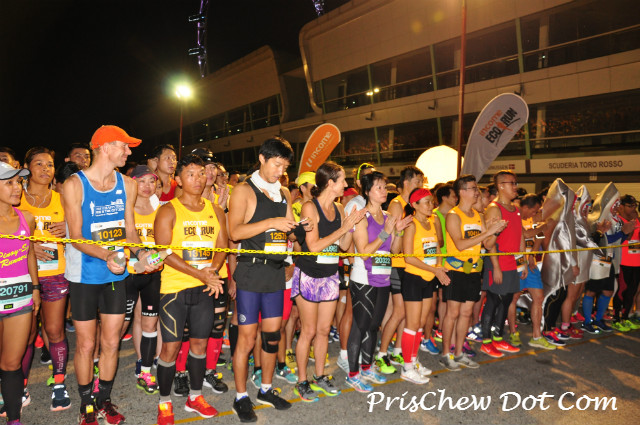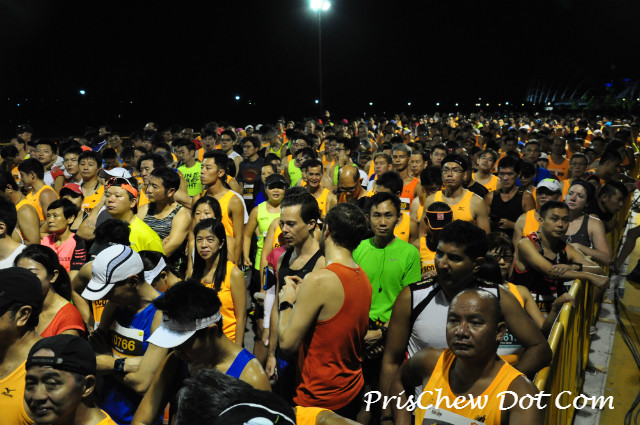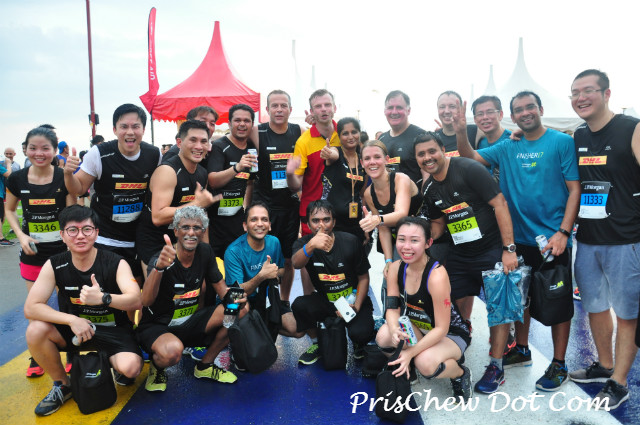Derek Murphy does not have a background in forensics or detective work.
But after a major city marathon has taken place, the 46 year old business analyst from Western Ohio, United States, will slowly scrutinise the online results, looking out for runners who may have possibly cheated in the race. And once a cheat has been found, then Murphy will write about them on his website, MarathonInvestigations.Com.

After a major city marathon has taken place, Derek Murphy will pull up the data and look for runners who may have cheated.
Said Murphy, “My background is in sales and analytics. I have always worked with spreadsheets and mapping software to create reports and make recommendations for product placements, and so on. That skill set does translate over to investigating race results.”
Murphy himself had used to run marathons, but after having started a family, he has since slacked off, and now dedicates his time to busting out marathon cheats.
Wondered how many runners cheat

Murphy used to run marathons himself but stopped after starting a family. [Photo: Derek Murphy]
What had initially given Murphy the idea to bust out these marathon cheats? He explained, “I was following the story of Mike Rossi – who cheated to enter the 2015 Boston Marathon – and with all the attention he was receiving, I began to wonder how many more runners cheat.”
Rossi, a father from Pennsylvania, United States, had run a time of 3hours 11minutes 45seconds at the Leigh Valley Health Network Via Marathon in 2014, to qualify for the Boston Marathon. But his timing was not in line with all of his other race results. For example, his time at Boston was 4hours 1minute 42seconds. He had also run 3hours 43minutes at the Philadelphia Marathon – both of these two timings are more in line with Rossi’s other running records.
At the same time too, Rossi also did not appear in any of the official Via Marathon race photos – except at the finish line. Yet, other runners who had supposedly finished near Rossi were also photographed at between three to six other points along the race course.
Common ways to cheat

There are two common ways for runners to cheat at races, says Murphy.
Like what Rossi had possibly done, course cutting appears to be one common method that runners tend to cheat at races. Said Murphy, “The two most common ways are course cutting, and using bib mules, that is, having someone run with your bib to qualify for Boston.”
He added, “And there are two main reasons why people would do it. One is just to be able to claim that you finished a marathon or that you won your age group and so on. Related to that are people who benefit from these performances, either that they are product ambassadors, sponsors, running coaches and so on. These people receive a tangible benefit from cheating.”
Another common reason, Murphy also adds, is to “qualify” for the Boston Marathon, or other major marathons that have qualifying times, such as the New York Marathon or the Chicago Marathon.
How Murphy susses out cheats
In order to suss out these race cheats, Murphy would look at runners’ timing splits after the race. He explained, “Sometimes this is real obvious to see. Especially if there are missed splits, coupled with a significant advantage gained in the section where they missed the timing mats. Other times a runner may hit all the mats, but cut portions in between the mats. I calculate times for all splits and analyse these in great detail to flag those that should be looked at, more closely.”

To find out who cheated at a race, Murphy would look at the runners’ timings and race splits.
Added Murphy, “But if a person has some verifiable history to support the time that they ran in the questionable race – unless there is indisputable evidence of the cheating – I will tend to move on. I may report them to the race director asking if they have more data, such as GPS information times for the unpublished mat. I will continue on if the questionable result is paired with other evidence – for example, previous race times do not match up, or there is a lack of photos indicating possible course cutting, and so on.”
His Case Studies
Murphy’s first case study of a runner cheating at a race, had been at the 2015 Fort Lauderdale A1A Marathon in Florida, United States. Said Murphy, “This was random, but they post the results in a way that you can see the entire field and splits online – without having to click on each individual runner. One runner with a Boston Qualifying Time jumped out immediately. She had missed splits and her pace was much faster at the sections she missed.”

Not all runners would typically admit to cheating at a race.
He continued, “Her previous times were nowhere near as fast as this race. It took about five minutes to determine that she cheated. She was eventually disqualified from the race, and admitted to cutting the course.”
Since then, Murphy’s detective work has busted some high profile runners, including 24 year old food blogger Jane Seo, who had been caught out at the 2017 Fort Lauderdale A1A Half Marathon race. She had claimed second position at the race, but had only run 11.65 miles out of the 13.1 mile course. Moreover, Seo had even biked the 13.1 miles of the race route that afternoon in an attempt to cover her tracks. She has since posted a public apology for having cheated at the race.
He has also caught out running blogger Gia Alvarez, who had qualified for the 2016 Boston Marathon by getting her friend to run a qualifying time for her. She received a lifetime ban from the Boston Marathon and has since apologised for cheating.
Not all runners admit to cheating
But not all runners will admit to cheating though, according to Murphy. Said the detective, “Most people deny it, or ignore it when they are called out. There are exceptions though. I think it sometimes depends on how much attention a particular article receives. The more attention they get, the harder it is to deny.”
His work has helped the running community

Murphy’s detective work has helped the running community, in more ways than one.
But Murphy definitely feels that his detective work has helped the running community around the world, in more ways than one. He said, “With all the attention on my site and my efforts, I am sure some people will think twice before cheating, either for fear of getting called out in an article, or because they now realise the other side of it – if cheating for Boston or an age group award, it is not just about cheating themselves, it takes away from others who worked hard for the achievements.”
He added, “Also I think some articles have educated runners that bib selling and race banding is also wrong, and I have to believe that I’ve stopped some of that.”

Leave a Comment